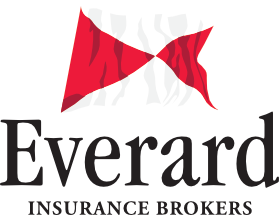
CIF and FOB are two different international shipping agreements determining who is responsible for goods during transit – the buyer, or the seller.
In this post we will outline the differences between CIF and FOB, and examine the insurance implications of each.
What is CIF in Shipping?
CIF stands for cost, insurance, and freight. In this arrangement, the seller takes on the following responsibilities:
- Loading the goods onto the ship.
- Covering the cost of shipping.
- Arranging adequate marine insurance to cover the goods during shipping.
- Acquiring all necessary documents, licenses, and inspections.
The buyer takes full responsibility for the goods from the moment they reach the destination port. This includes liability for any extra costs that may be incurred during the voyage, such as customs fees.
What is FOB in Shipping?
FOB stands for free on board. In this arrangement, the seller has very few responsibilities. Essentially, they are responsible for transporting the goods to the port, and for ensuring they are loaded onto the ship.
The buyer assumes full responsibility for the goods once the voyage begins. This means they are responsible for arranging transportation, for paying any additional shipping fees, for arranging adequate marine insurance for the goods in transit, and for unloading the goods at the destination port.
What is the Difference Between CIF and FOB in Shipping?
The key difference between CIF and FOB is who takes responsibility for the goods during shipping – the buyer, or the seller.
Under CIF, the seller is responsible for all the costs and risks of shipping, with the buyer only taking responsibility upon delivery.
Under FOB, the buyer takes responsibility for all costs and risks from the moment the goods are loaded onto the ship.
CIF or FOB – Which is Best?
Neither arrangement is necessarily “better” than the other. The arrangement you choose will depend on the nature of the trade agreement.
Pros and Cons of CIF for Buyers
PROS: The seller takes full control for all shipping arrangements, and other responsibilities. This invariably makes things more convenient for the buyer. But it can also make things more cost-effective for both parties – particularly if the seller has more experience with local customs
CONS: CIF can prove a lot more expensive than FOB. Plus, it can lead to communication issues, as the buyer may have to contact the seller should they ever need an update on progress etc.
Pros and Cons of CIF for Sellers
PROS: CIF allows sellers to use their chosen providers, which can help save money. They can also choose to include insurance and other related costs in the shipping prices they charge the buyer, which can make CIF the most cost-effective, and even profitable, choice for sellers.
CONS: Sellers take full responsibility for the goods until they reach their destination. If anything happens to the ship or the goods during the voyage, they could be liable for all damages or losses.
Pros and Cons of FOB for Buyers
PROS: In an FOB arrangement, the buyer can choose their own providers for many aspects of the shipment, from logistics to insurance. This can help them find the best prices, while giving them more control over delivery timeframes etc.
CONS: The extra responsibility can result in added pressure – more things to manage means more things that could potentially go wrong. As such, smaller or less experienced buyers may struggle with the process.
Pros and Cons of FOB for Sellers
PROS: FOB allows sellers to complete their sales much sooner. Once they have ensured that the goods are loaded, the seller has nothing else to worry about. From this point on, the shipment becomes the buyer’s responsibility.
CONS: Because they have less control over logistics, insurance, and other expenses, FOB arrangements can often result in lower profit margins for sellers.
Get Comprehensive Marine Insurance From James Hallam
Everard Insurance Brokers are the specialist marine trading division of James Hallam Limited who are accredited Lloyd’s brokers.
Whether you are looking to cover a single vessel or an entire marine trade supply chain, we deal with a wide range of niche insurance providers, and we can arrange the cover you need at the best possible price.
Find out more about our specialist marine insurance services.

